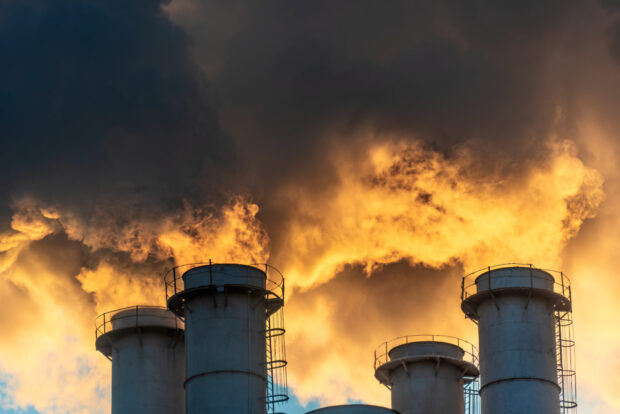The U.S. Supreme Court late last month said it would hear a bid to block the Environmental Protection Agency from enforcing a federal regulation aimed at reducing ozone emissions that may worsen air pollution in neighboring states.
Acting on requests by the states of Ohio, Indiana and West Virginia, as well as pipeline operators, power producers and U.S. Steel Corp, to avoid complying with the federal “Good Neighbor” plan restricting ozone pollution from upwind states, the court said it would hear arguments in the dispute in February.
In a major ruling last year, the conservative-majority Supreme Court imposed limits on the EPA’s authority to issue sweeping regulations to reduce carbon emissions from coal- and gas-fired power plants under the landmark Clean Air Act anti-pollution law.
At issue in the current dispute is an EPA rule, finalized in June 2023 by President Joe Biden’s administration, regulating ozone, a key component of smog, in a group of states whose own plans the agency determined did not satisfy the “Good Neighbor” provision of the Clean Air Act requiring efforts to account for pollution that could drift into states downwind.
The agency said the inadequate plans in 23 states required a federal program to reduce emissions from large industrial polluters in those states. A flurry of litigation in lower courts already has paused enforcement of the rule in 12 states.
The case before the justices involves litigation brought by three states – Ohio, Indiana and West Virginia – pipeline operators including Kinder Morgan, U.S. Steel, and regional electricity generators and energy trade associations. They challenged the rule in the U.S. Court of Appeals for the District of Columbia Circuit, arguing that the EPA violated a federal law aimed at ensuring agency actions are reasonable.
Some of the industry requests were specific: Kinder Morgan asked the justices to block the regulation as it applies to natural gas pipeline engines, while U.S. Steel sought to prevent its enforcement against iron and steel mill reheating furnaces and boilers.
When the D.C. Circuit in September and October refused to block the rule pending its review, the challengers asked the Supreme Court to intervene. The EPA’s plan will force them to bear unreasonable costs and will destabilize the states’ power grids, the states said in a written brief.
The Justice Department, defending the EPA, told the Supreme Court that blocking the rule for these challengers would “seriously harm downwind states that suffer from their upwind neighbors’ emissions” and expose their residents to public-health risks.





















 Earnings Wrap: With AI-First Mindset, ‘Sky Is the Limit’ at The Hartford
Earnings Wrap: With AI-First Mindset, ‘Sky Is the Limit’ at The Hartford  How Americans Are Using AI at Work: Gallup Poll
How Americans Are Using AI at Work: Gallup Poll  RLI Inks 30th Straight Full-Year Underwriting Profit
RLI Inks 30th Straight Full-Year Underwriting Profit  What Analysts Are Saying About the 2026 P/C Insurance Market
What Analysts Are Saying About the 2026 P/C Insurance Market 




